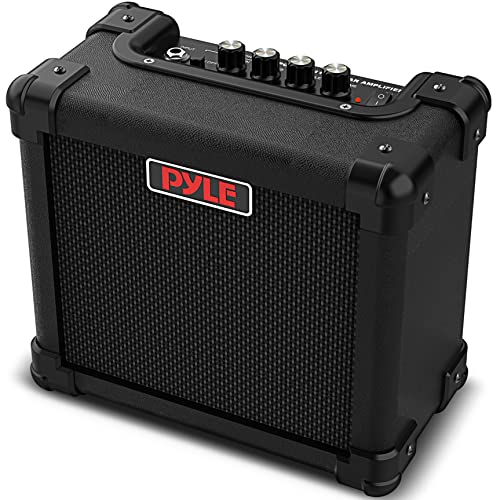YellowJacket
Well-known member
Don't forget the guitars involved here. We're talking about one guy "mikey" with a PRS and another "MetalTastic" with an Ibanez. If we are going to tier things here in order of importance for tone creation we have 1) guitar, 2) pickups, 3) amp, 4) speaker / cab, 5) power tubes, 6) preamp tubes and finally, 7) OD Pedals, Stomp Boxes, etc. So basically, Mikey isn't going to dial in the same settings as metaltastic unless he is using the same guitar since both instruments will have a unique voice otherwise. A simple example is a Gibson LP vs a Gibson SG. The SG is really a 'better' guitar for a dual since the LP has such a huge low end. Basically, an SG player who wants to get my tone has to pull up the bass significantly to equal my sound since I dial it in lower to compensate for my guitar. For my tastes, I don't say Mikey's tone is undergained, but I do agree that it is brittle to my ears.
For arguments sake, tubes make a BIG difference in sound in my experience. Power tubes can shape tone significantly so I don't see why the preamp tubes wouldn't play a part as well. Basically, you have to cover all your bases to get what you want before you start mucking with the signal chain by adding pedals. Pedals seem like a bandaid solution to me otherwise.
I personally never run the presence on my dual above about a quarter because I really find those frequencies are pronounced enough already by the aggressive highs of the Celestion v30s found in many Mesa cabs. While the v30s are very tight and impressive sounding speakers, I personally find that the highs become very fatiguing over time. I've ground this axe about blending speakers for quite some time but I don't know what a metal player would combine with a v30 that is tight enough to maintain clarity in tone. Any other common (and good) celestion speakers such as a G12m, G12H, G12T-75, tend to have much more cone breakup which is better for styles with less gain. (I personally don't like the Classic Lead for my tastes) There is a rigs and tones thread where a guy posts a clip of metal with a Dual Rec running through a Marshall 1960a (G12T - 75s) so this speaker type might work in combination with v30s but I imagine it might be to floppy of a sound for metal.
Mikey, since you play hard rock, not metal, you may find you like a speaker combination as well. I personally love a flavour of greenback along with v30s. The greenbacks are a high breakup and super creamy speaker. They do have a farty low end but the low end is tightened up by the v30 while the greenbacks mellow out the highs of the v30s. Although my personal favourite is a g12m, the g12Hs apparently have a more pronounced mid and a huge low end which balances v30s very well.
For arguments sake, tubes make a BIG difference in sound in my experience. Power tubes can shape tone significantly so I don't see why the preamp tubes wouldn't play a part as well. Basically, you have to cover all your bases to get what you want before you start mucking with the signal chain by adding pedals. Pedals seem like a bandaid solution to me otherwise.
I personally never run the presence on my dual above about a quarter because I really find those frequencies are pronounced enough already by the aggressive highs of the Celestion v30s found in many Mesa cabs. While the v30s are very tight and impressive sounding speakers, I personally find that the highs become very fatiguing over time. I've ground this axe about blending speakers for quite some time but I don't know what a metal player would combine with a v30 that is tight enough to maintain clarity in tone. Any other common (and good) celestion speakers such as a G12m, G12H, G12T-75, tend to have much more cone breakup which is better for styles with less gain. (I personally don't like the Classic Lead for my tastes) There is a rigs and tones thread where a guy posts a clip of metal with a Dual Rec running through a Marshall 1960a (G12T - 75s) so this speaker type might work in combination with v30s but I imagine it might be to floppy of a sound for metal.
Mikey, since you play hard rock, not metal, you may find you like a speaker combination as well. I personally love a flavour of greenback along with v30s. The greenbacks are a high breakup and super creamy speaker. They do have a farty low end but the low end is tightened up by the v30 while the greenbacks mellow out the highs of the v30s. Although my personal favourite is a g12m, the g12Hs apparently have a more pronounced mid and a huge low end which balances v30s very well.





















